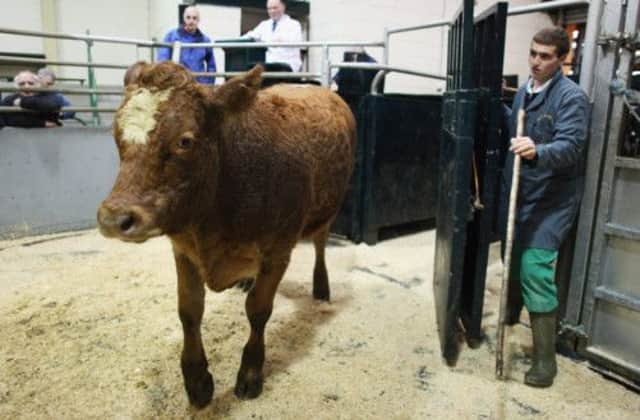Farming: Mixing old and new the way ahead


David Speller, who rears 180,000 broilers in Chesterfield, Derbyshire, said farmers should use state-of-the-art technology to prove that intensive farming can produce affordable, sustainable food.
Speaking at a Royal Agricultural Society of England conference on precision livestock production, Speller said using equipment such as cameras and microphones to monitor bird behaviour would help producers show that welfare in large farms could be incredibly high.
Advertisement
Hide AdAdvertisement
Hide AdHe said he was using technology which had initially been brought into the farm to enhance his management practices to prove to retailers that his systems were actually enhancing bird health and welfare.
“The first reason we wanted to introduce technology was to collect data, but we are now using it to go to retailers to question their welfare claims,” he told delegates at the event in Derby.
“By collecting enough information, we give retailers evidence which they can pass on to consumers to show that intensive systems aren’t bad in terms of welfare.
“Retailers need data so that, if a consumer questions them, they can give scientific arguments, and its up to us to use technology to collect that data if consumers are going to be convinced.”
Speller said that, by collecting realtime data on things like feed and water consumption, bird temperature and live-weight gain via automated systems, he was instantly alerted to problems in his flock and able to make changes to rectify them.
By ensuring his birds were happier, he had been able to streamline his production system, improve growth rates and reduce costs.
“People might look at these systems and think they are expensive, but in the savings you make you can quickly recoup costs,” he added.
“As they are becoming cheaper, there’s no reason why a small livestock farmer could not invest in some of these technologies to make a cost-effective way of developing their business.”
Advertisement
Hide AdAdvertisement
Hide AdIntroducing precision livestock systems could also help encourage new entrants to the livestock industry, Speller added.
“This kind of technology allows for changes in lifestyle. People don’t want to work on-farm 24/7, they want to have regular hours and holidays, and that’s something these systems will allow.
“It will make the farming industry more attractive to young people, which is what we need.”
But while he advocated technological developments in livestock production, Spellar insisted it was still important that traditional stockmanship shills were not neglected.
“Just because you have computers doesn’t mean it will be acceptable to run fully-automated systems.”
“You can have staff who really understand the technological side of things, but you still need a good stockman.”